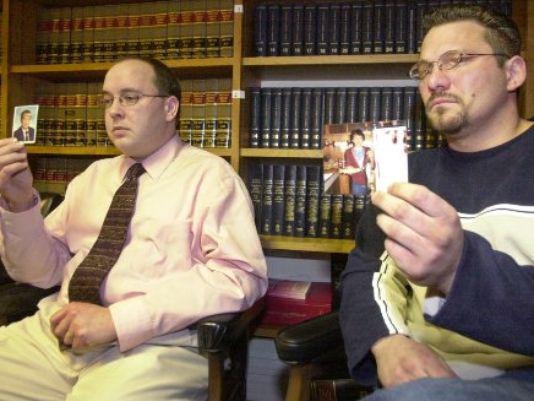|
No statute of limitations for abuse
York Daily Record
The allegations contained in a grand jury report about child sexual abuse in the Altoona-Johnstown Catholic Diocese are beyond appalling. They are horrifying. For decades, the grand jury found, priests in the diocese sexually abused hundreds of children. Two bishops covered up the abuse, transferring priests accused of abusing children to other parishes. The grand jury found a shocking, and documented, pattern of criminal behavior that is simply unimaginable. That an institution that claims moral authority would behave so immorally is more than unsettling. It is terrifying. And yet, that wasn't even the worst of the grand jury report. The worst is that, despite the evidence, authorities and victims had no recourse. The statute of limitations has expired for prosecuting any of the cases and for victims to seek recompense in civil court. In short, the cover-up worked. Yes, the alleged crimes have been exposed, but there is nothing that can be done to dispense any measure of justice in these cases. For that reason, the grand jury recommended abolishing the criminal and civil statute of limitations in child sexual abuse cases and establishing a two-year window for previous victims to seek justice in civil court. Those recommendations make a lot of sense, especially when you consider the circumstances. In cases of child sexual abuse, experts say, it often takes years for victims to come to terms with what happened to them and muster the courage to come forward. In cases involving powerful institutions – be it the Catholic Church or Penn State – that process takes even more time because victims are intimidated into silence by the institution's power. Current state law seems arbitrary. The statute of limitations varies for civil and criminal cases. In criminal cases, victims of child sexual abuse who turned 18 after Aug. 27, 2002, had until their 50th birthday to report the abuse. The statute of limitations for people born before that date has expired because the law, as it existed prior to that date, allowed them to report up to their 30th birthday. In civil cases, child victims have until their 30th birthday to file lawsuits, regardless of when the abuse occurred. There are two proposals in the state Legislature to address the issue and adopt as law the grand jury's recommendations. One, House Bill 655, would eliminate the statute of limitations in both criminal and civil cases. The other, House Bill 951, would open a two-year window for previous victims to file civil suits, two years considered a reasonable amount of time to allow victims access to the courts. If these proposals sound vaguely familiar, they should. A grand jury investigating the Philadelphia Archdiocese made the same recommendations in 2005 and 2011. For some reason, neither bill has found much traction with legislators. Both bills have been stuck in the House Judiciary Committee since last year. Two York County lawmakers, Rep. Kate Klunk, R-Hanover, and Rep. Mike Regan, R-Carroll Township, are members of the Judiciary Committee. They should push committee leadership to discharge these bills for a floor vote – particularly Rep. Regan, a former U.S. Marshal whose career was going after criminals in serious cases such as child sex abuse. Certainly, as matter of justice, statutes of limitations may have a purpose. Memories fade and testimony becomes unreliable. Witnesses may disappear or die. Evidence that would support the charges might be lost to time. And then there was the statement from a defense attorney who, defending the statute of limitations, said, "No one should have a never-ending threat held over his/her head." You know, if a person has committed one of the most heinous crimes that a person can commit, he or she deserves to have "a never-ending threat held over his/her head." What about the victims, the people who have to live the rest of their lives with the deep scars cause by such abuse? What about their life sentences of having to live with what the perpetrator did to them? Statutes of limitations, as one expert said, make sense in a lot of cases. But not in child sexual abuse cases. Those not keen on abolishing the statute of limitations often bring up the possibility of someone being falsely accused of committing this terrible crime. They have a point; once that bell is rung, it's impossible to unring and a false accusation can ruin a person's life. But eliminating the statute of limitations does not remove the burden placed on police to gather adequate evidence to file charges and on prosecutors to prove their case in court beyond a reasonable doubt. Opening a two-year window for previous victims to file civil suits has also attracted some opposition, with state Rep. Ronald Marsico, a Dauphin County Republican who chairs the House Judiciary Committee, describing it as "unconstitutional." He did not elaborate, though, and some experts on constitutional law have concluded that such windows do pass constitutional muster. Of course, these recommendations are just part of the solution to protecting children from predators. When the Altoona-Johnstown report was released, the Diocese of Harrisburg, which covers York County, released a statement saying it maintains "a zero tolerance policy" toward sexual abuse of children and goes "beyond what is required by the state of Pennsylvania" to protect children. The diocese has independent audits performed annually to ensure it is complying with church standards when it comes to taking steps to prevent such crimes. Ultimately, in these kinds of cases, and as was the case in the Jerry Sandusky case, institutions can play a large role in changing the culture to protect children from predators. But that is just part of the puzzle. The other part is giving victims their day in court. Eliminating the statute of limitations would provide them with that small chance of getting some deserved justice.
|
.
Any original material on these pages is copyright © BishopAccountability.org 2004. Reproduce freely with attribution.
